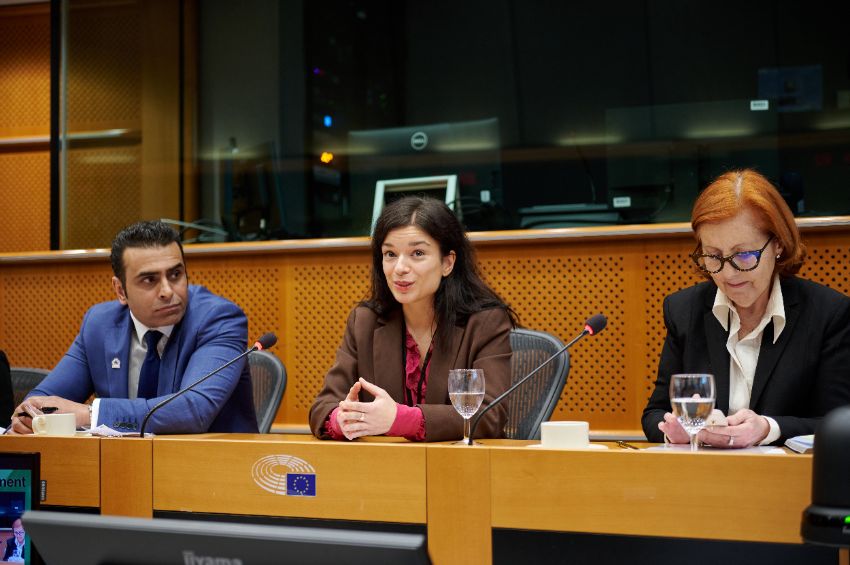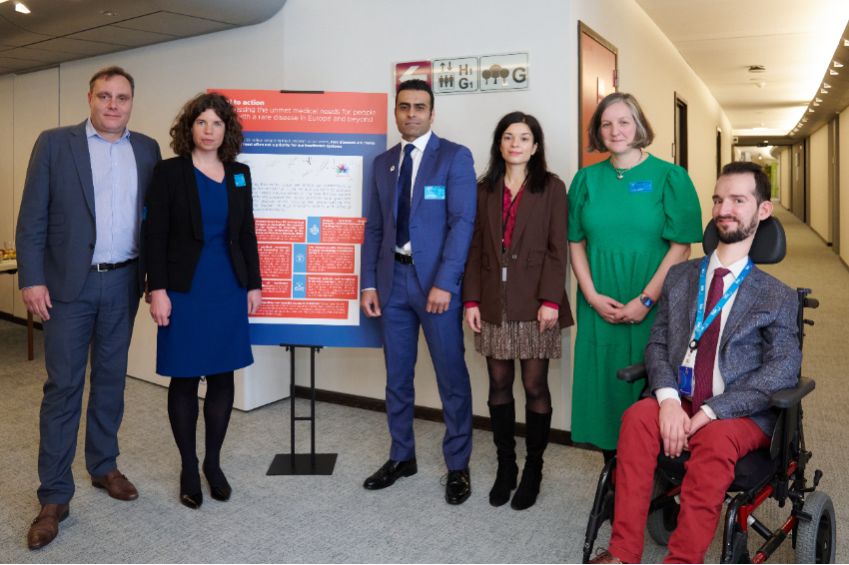There are estimated to be around 7,000 known rare diseases, affecting 36 million people in the EU alone. These are often invisible and a long way down the list of priorities for national healthcare systems across the EU and beyond.
Following World Rare Disease Day, The Parliament, in collaboration with Partnering4PNH, Sobi and EUCOPE, organised a high-level policy event to discuss the next steps in addressing these unmet medical needs. The event, which took place in the European Parliament, brought together stakeholders including MEPs István Ujhelyi (Socialists and Democrats, Hungary), Stelios Kympouropoulos (European People’s Party, Greece) and Maria da Graça Carvalho (European People’s Party, Portugal).
Still no treatment for 95% of rare diseases
MEP Ujhelyi, the Political Co-Chair of Partnering4PNH, pinpointed that due to the complex nature of rare diseases, the limited knowledge combined with the small number of people which they individually affect, people living with a rare disease are often invisible in our healthcare systems.
“Innovative rare disease therapies are available in only a fraction of Member States... The EU HTA Regulation can uphold the promise of faster and more equitable access” - MEP István Ujhelyi (Socialists and Democrats, Hungary)
The European Orphan Medicinal Products (OMP) and Paediatric Regulations have offered signs of progress, helping to bring more than 200 orphan and rare disease medicines to patients. But, there is still plenty to be done, with as many as 95% of rare diseases still lacking treatment options.
The OMP Regulation and the General Pharmaceutical Legislation are currently being revised by the European Parliament. MEP Ujhelyi sees the revision process as an opportunity to boost scientific advancements and to serve more patients across the EU. He also stressed the need to design patient-centric policies that yield long-term outcomes for patients.
“Currently, innovative rare disease therapies are available in only a fraction of Member States because national Health Technology Assessment (HTA) frameworks often don’t consider rare disease specificities and the medical context. The EU HTA Regulation can uphold the promise of a faster and more equitable access for rare disease patients,” he said.
The importance of research, innovation and data collection
MEP Maria da Graça Carvalho explained that policymakers can help those affected by rare diseases through a combination of strong legislation, less bureaucracy (whilst keeping safety), more research, more public-private cooperation within and outside the EU and establishing coherent data infrastructures. MEP Carvalho pointed out that rare diseases can benefit from data being gathered and shared, using the knowledge gained to improve patient outcomes. But, a balance between access to knowledge and the privacy of data must be struck.
The power of data collection was furthered by Jelena Malinina, Data Director of EURORDIS, a non-profit alliance of over 1,000 rare disease patient organisations from 74 countries.
“For the moment, rare disease data is scarce and not harmonised and there are a lot of gender discrepancies, even more than for other diseases. One key priority for our organisation is the European Health Data Space, whose goal is to boost data sharing for more research,” she said.

Reducing waiting times before diagnosis: PNH as a case study
A case study of ultra-rare disease Paroxysmal Nocturnal Haemoglobinuria (PNH) was presented as an example of unmet medical needs. Patients are subject to lengthy waiting times before diagnosis.
Olena Wagner, the Chair of PNH Ukraine, noted that PNH is no exception to the problem of lengthy diagnosis in connection with rare diseases. Patients have to undergo many tests and visits to specialists before receiving a proper diagnosis. “Sometimes the symptoms can be so controversial that the average healthcare provider, especially a primary healthcare provider, would not recognise the symptoms,” she said.
Symptoms of PNH include lethargy, intermittent anaemia, dark urine, abdominal pains, erectile dysfunction and a significant thrombosis risk, with a significant risk of mortality if left undiagnosed. Dr Morag Griffin, a Consultant Haematologist at Leeds Teaching Hospitals National Health Service Trust, UK, said that the goal is for all patients living with PNH to have timely diagnosis and access to treatment according to individual disease stage and outcome goals.
According to Ms Wagner, the Partnering4PNH expert group believes that collecting data on persistent symptoms such as fatigue or cognitive complications via specific measurements can contribute to addressing the remaining unmet medical and patient needs.

Louise Arnold, a PNH Specialist Nurse at Leeds Teaching Hospital, noted that nurses act as a key gateway in sharing information to patients and supporting healthcare professionals’ understanding of the disease. However, given that PNH nurses are so rare, she recommended that governments consider offering a PNH specialisation as part of nurse training curriculum and establishing a national core PNH network of nurses in order to improve the care and outcomes for people living with PNH.
MEP Kympouropoulos, Political Co-Chair of Partnering4PNH, stressed that rare diseases need to be made a research and innovation priority. He also underlined the need to strengthen the training of healthcare professionals and to provide more opportunities for specialisation to reduce the time to diagnosis.
Partnering4PNH has published a global policy consensus paper, which discusses how to tackle the unmet medical needs of people living with a rare disease in more detail. It also features a call to action to invite partner organisations and policymakers to pledge their commitment to continue the search for much needed solutions to address the unmet needs of the rare disease patient community.
In partnership with
.png)
Partnering4PNH, a Sobi sponsored initiative, is a multistakeholder policy initiative that aims to highlight the gaps and challenges faced by people living with an ultra-rare disease called paroxysmal nocturnal hemoglobinuria (PNH) when accessing care and adequate treatments
Sign up to The Parliament's weekly newsletter
Every Friday our editorial team goes behind the headlines to offer insight and analysis on the key stories driving the EU agenda. Subscribe for free here.